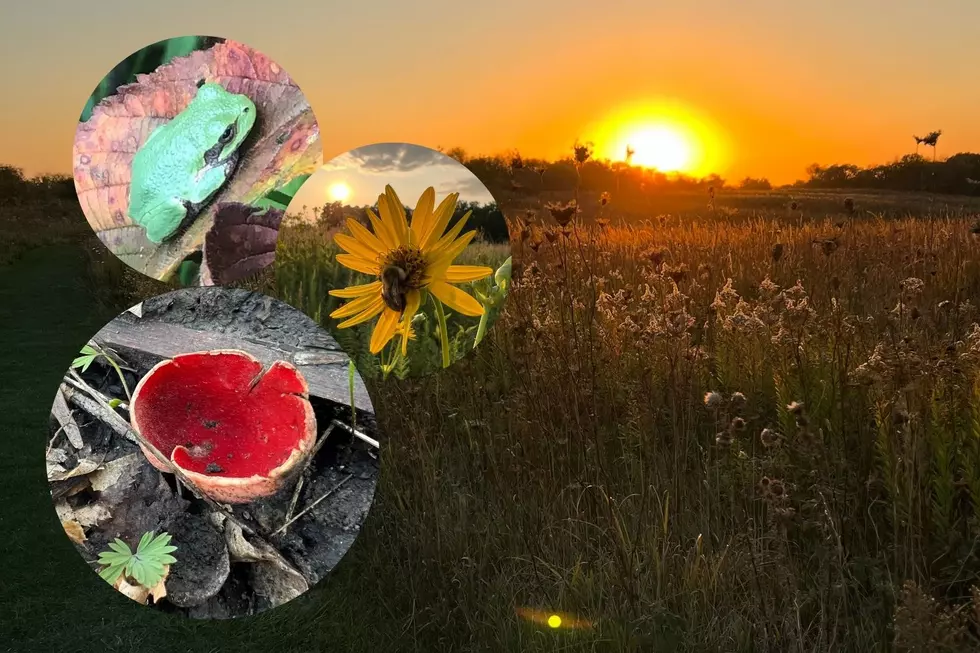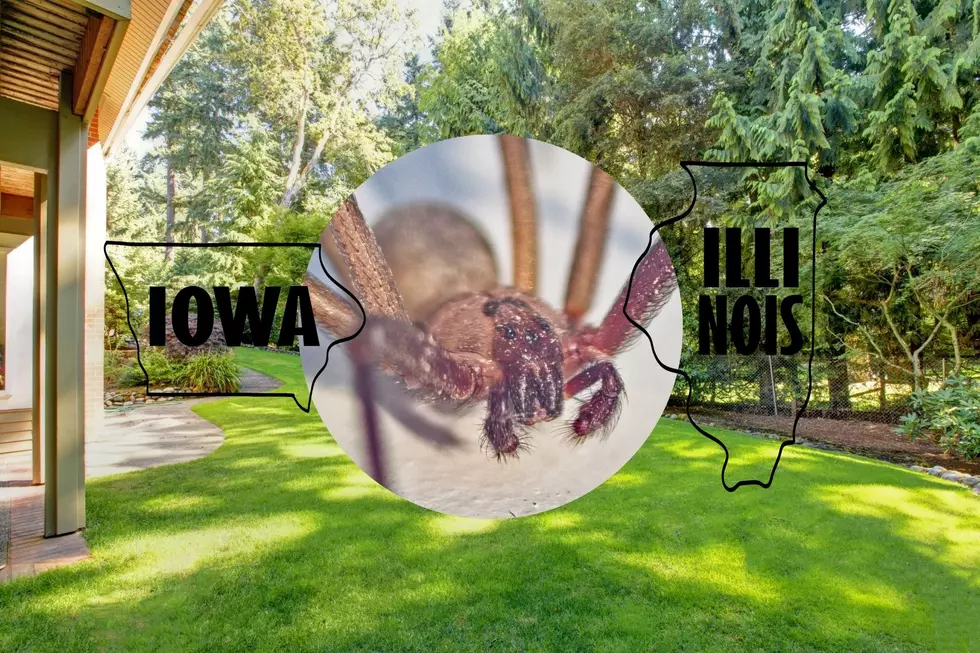50 Years Ago: The Blues Project Release Their Tour de Force, ‘Projections': Exclusive Interviews
The classic lineup of the Blues Project came together in 1965 in New York's Greenwich Village. The band featured Roy Blumenfeld (drums), Danny Kalb (guitar and vocals), Steve Katz (guitar and vocals), Al Kooper (keyboards and vocals) and Andy Kulberg (bass and flute). Projections, released in November 1966, displayed the band's jazz, blues, folk and rock roots. Produced by Tom Wilson, it was the Blues Project's first studio album, the follow-up to 1965's Live at the Café au Go Go.
By 1967, after one more LP, the band began to splinter. Kooper and Katz went on to form Blood, Sweat & Tears. Blumenfeld and Kulberg, who died in 2002, formed Seatrain. Kalb continued with various lineups of the Blues Project until the early '70s, when he emerged as a solo artist.
In exclusive interviews, the four surviving members of the Blues Project shared the stories behind the original tracks and re-arrangements that became Projections. "From what I remember, the process was, do we have enough songs?" says Katz. "I think we just had enough to do the album."
"I Can't Keep From Crying"
Al KOOPER: I didn't mind "I Can't Keep From Crying." I didn't mind that version. It's an old blues song and I sort of rearranged it.
DANNY KALB: I just listened to it the other day, and there were different times during the last 40 years when I thought maybe I didn't like what he did with it. But now I don't feel that. Now I feel that he took it somewhere else. And the raw energy of that tune, even though it turned to love lyrics, the love lyrics are unimportant because it's a psychedelic adventure and a powerful gospel song together. And it makes sense.
"Steve's Song"
STEVE KATZ: I wrote this song, the first song that I ever wrote. I called it "September Fifth." It wasn't even Sept. 5 yet, I just wanted to see what happened on that day. It was like a psychedelic love song. We tagged on a little baroque thing that I had written at the beginning.
AL KOOPER: When we were first putting it together, Steve and Andy came up with the intro. And Andy really wanted to play more flute, so it was a good opportunity for him to play the flute in the intro. And it worked perfectly. And what Roy was playing in the intro was really great too, arrangement-wise. I love that intro.
ROY BLUMENFELD: Andy had turned me on to Dances From Terpsichord and these little medieval drum things and stuff. So I got into that a bit. That one kind of evolved over time as we played, as it should be. We played together, that's how it changed and developed, the intro to the tune. 'Cause without that intro, it would have just had that ... and the drum roll in. There was that sort of tension-release, what's gonna happen next. It became an interesting sonic experience.
STEVE KATZ: I'm flat in a couple of places. I tried to do my vocal over again, and Tom Wilson said there wasn't enough time because Eric Burdon was coming in. We were strictly by three-hour sessions and that was pretty much it. There may have been a couple of sessions that were back-to-back but it was no longer than six. We were kicked out of the studio when our sessions were finished. They didn't really have too much faith in us, I guess. We were on the road and, of course, there were no cellphones in those days. MGM calls our manager [Jeff Chase], who is like a total idiot, and they said, "We have the artwork, we have the master tapes, but we're missing the name of the second song on the first side." So Jeff goes, "Second song, first side? Second song, first side? Oh, that's Steve's song." They said, "Thanks, Jeff" and hung up. We get off the road a week later and I'm looking at proofs and I said, "What the hell is 'Steve's Song'?"
"You Can't Catch Me"
ROY BLUMENFELD: That was a Chuck Berry tune. That one had a really cool kind of groove to it that we got into. Danny did a real sterling job of knockin' that one out of the park when he would do it. He sung with sincerity and meaning. And that to me really trumps some kind of vocal gymnastics that people do that really don't have that sense of connective, organic meaning to the lyrics and to the words. So I've gotta hand it to Danny on all that, it's very authentic in that sense.
DANNY KALB: I always loved Chuck Berry, and he was one of my first influences as I started listening to rock 'n' roll, which I did early. I had a group in college, two kind of working class Italian guys and two Jewish middle class guys. It was called the Gay Notes – before gay was gay, you know? [Laughs] And we used to play Elvis Presley and Jerry Lee Lewis, the great '50s rock 'n' roll and we weren't bad, we weren't bad.
AL KOOPER: Very early in our career we backed up Chuck Berry at Town Hall in New York. It was one of our first big gigs. We opened for him and then we backed him up. It was nerve-wracking because he was very difficult to work with. Fortunately I knew all the songs so he didn't give me any s---. He was very tough. So the rehearsal was scary. Not for me though. Also I had played rock 'n' roll shows in my early career when I was in the Royal Teens. I played a lot of rock 'n' roll shows where there were 14 bands on the bill and everybody played a couple of songs. Alan Freed shows, stuff like that. Not only was I raised on that but I also participated in it. You can stand in the wings and watch Jackie Wilson and Buddy Holly. It was unbelievable. I'll never forget that. I used to go as a spectator in '56 and '57 and by '58 and '59, I was in the Royal Teens and so I was playing in those shows. It was a head-f--- for me. It was unbelievable. It's like God reached down and touched me.
"Two Trains Running"
STEVE KATZ: It was Danny's tribute to Muddy Waters. Danny lived for Muddy Waters, which is sort of understandable given how wonderful, how monumental Muddy and some of his songs were. And that was one of his most monumental songs.
AL KOOPER: We started playing it and as we became a better band it became a better arrangement. And there were amazing things in it. It was a really great arrangement. It's nothing like the Muddy Waters version.
DANNY KALB: It's one of the great things done by any blues band there is, white or black. And we're going through it and it's powerful, it's like a rock opera but short. And it's Muddy Waters. But it's also us. And it's also showing that America was going down the road through music and a lot of other things of integration. The music was making people take a second look at the hatred.
AL KOOPER: What's really funny is on the version that's on the album, Danny's string went out of tune and as part of the arrangement he tuned it back up. It was fabulous, we didn't have to stop. Normally you would stop. But he made it part of the arrangement. That was a great moment.
DANNY KALB: We were up there in the studio and there's magic in the air. We were right before the end and I hit one bad note, but I quickly made the bad note into a good note in a quarter of a second. And the thing comes together and ends right and we've got a masterpiece.
STEVE KATZ: There was no creativity on the engineers. They were busy setting up for Eric Burdon. They probably were bringing in microphones while we were doing our take.
DANNY KALB: I'd been playing it for a long time. I was a folk guitarist and a blues guitarist. I studied with the great Dave Van Ronk, he was my teacher. Dave was one of the greatest. A great blues singer, a great teacher and a great soul. He died a few years ago. He changed my life, he changed [Bob] Dylan's life. We always gave tribute to our mentors. When we played on the same bill as Muddy Waters, who was our hero, a top man, we did "Two Trains Running." After the show, his band was packing up, the show was over and I was packing up and I saw Muddy leaving the Café au Go Go and I had to find out, in my deepest part, what he thought of our version of this tune that started out in the South many years ago, before he recorded it with any electric band. And these strange white people were doing this song. What was that about? So right before Muddy opened the door to go, I went up to Muddy Waters and I said to him, "Mr. Waters -- well, what did you think?" And I knew at that point that he knew what I was asking him. And he said to me, "You really got to me." If I had died then, it would have been enough.
Listen to the Blues Project's 'Wake Me Shake Me'
"Wake Me Shake Me"
AL KOOPER: There used to be a nightclub that the mob owned on 47th between Seventh and Eighth. It was called the Sweet Chariot. And it was a gospel nightclub. So they only had gospel people playing there, and the waitresses were dressed as angels. And when you walked in, they gave you a tambourine to play and then you'd leave it when you left. Now I had picked up on gospel music at a very early age because of people that I went to school with when I was like 13, 14. They turned me on to gospel music. So it was a big part of my life. So this group the Golden Chords that played at the Sweet Chariot floored me with their version of "Wake Me Shake Me." It was so good that I couldn't do it with the Blues Project because I knew that we couldn't do it as good as they did. So I had to come up with my own arrangement. But it worked out very well because the band got into it and everybody played great stuff. So it was really good and it gave us a lot of room to improvise live. So it became our closer. We'd close with it. And it was a big song for us. But that's where it came from. It's a traditional gospel song.
DANNY KALB: Al did his own thing with it, and that's the way it happens in music. Nothing comes from fresh air. You go to what's useful to you. Dylan does that. Everybody does that.
"Cheryl's Going Home"
DANNY KALB: That was a song by another composer, Bob Lind, I just listened to recently. The Blues Project version is excellent, Bob Lind's version is excellent, it's the best of both worlds.
STEVE KATZ: He had a hit record with "Elusive Butterfly." I guess I had a Bob Lind album or the single, and I liked the B-side and thought it would be good for us to do. But it was an awful mix.
"Flute Thing"
AL KOOPER: One of the first rehearsals that we had as a band, Andy said to me, "I also play flute and I would like to play some flute with the band if you have anything or if you could write something where we could do that, it would be great for me." And so I had this lick, a cadenza played by Barney Kessel as the ending lick of a song. I learned it in the late '50s on guitar and played it more than I should have. And so that lick came to me and I thought, "That would sound great on the flute. Why don't I just do that [demonstrates first part] and then I just needed [demonstrates second part] and I had a song for Andy."
ROY BLUMENFELD: The lead-up to the song "Flute Thing," that became the Muzak to a lot of folks' acid trips out there on the West Coast. It was, so to speak, their metaphoric elevator. The tune itself started to become more of a featured flute tune. Al had a solo, Danny had a solo, Steve laid down the bass line, he wasn't really a bass player per se. And I had a solo. My solo came after Al's. I became inspired by a lot of very cool jazz drummers that I was listening to. I was also listening to a lot of jazz and early on, a year or two before, I'd visit Al at his apartment in New York and he had a wall of albums, long-playing records. He'd go to one, he'd pull one out, like "Salt Peanuts." He'd play me these different tunes, go, "Check this out." He was really inspiring me to look into other drum ideas and listen to the players because I was growing rapidly as a player and listening to a lot of stuff.
AL KOOPER: We had to play it a certain way that was more jazzy than rock 'n' roll. But it just showed that we can do that. So I didn't think it was a bad thing. But I mean if you were a good jazz player and you listened to that track, you would probably go vomit. But we did the best we could and it wasn't so bad. Considering that we were 22 or something.
"Caress Me Baby"
DANNY KALB: I think that was a good version of that Jimmy Reed song. You have to do Jimmy Reed your own way. And the great thing about the Blues Project is that's what we did. We're not an imitating-kind of band even though we used other people's material very often. But just because you write your own songs, unless you're a great songwriter like Dylan or someone like that, doesn't mean that all your songs are great just because you wrote them. I believe in that. I believe in writing songs and I encourage it. But we were a great band. That's all I want to say.
"Fly Away"
AL KOOPER: It's a song I wrote about my first marriage. And I had a good arrangement for it, which my first marriage could have used. So it was easy for us to do because I just showed everybody what to play. It's one of those ones where the arrangement was equal if not better than the song. It was a really good arrangement. And so there's no holes in it. I think it really helped to make it work and we were all really playing together. Everybody's playing exactly what they should play. There's no bad parts in it. What was I influenced by? Probably more Dylan in the verses. I would say Dylan in the verses and the chorus was pretty original. I didn't take that from anybody. Except in the arrangement there's maybe a little "Down in the Boondocks."
DANNY KALB: Unfortunately, the record company just wanted to make a few bucks. They were not interested in the artists, and on the back of Projections, one of the great albums of the '60s, I don't think our names are on it. That's criminal.
STEVE KATZ: I have to say that our record company was really awful. There were things like that that were missed. From changing the name of my song, from not giving us enough studio time, not putting our names on it. There were just a lot of mistakes. There always were with Verve Folkways. It was awful.
AL KOOPER: We never saw the cover until it was in the store, and all stuff like that. We had zero control. We never heard the mixes 'till it was in the store.
DANNY KALB: I think that the way the Blues Project has been either forgotten or dissed is disgraceful. We were one of the most exciting bands in the period. We took big chances, spiritually and musically, and this is crap.
1966's Best Rock Albums
More From Eagle 102.3







